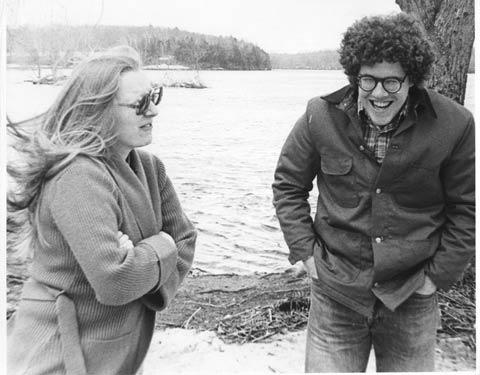You meet the strangest people on Twitter. The chairman of the Michigan Republican Party is running for chairman of the national committee, and modestly tweets that his “Blueprint for a GOP Comeback” is “pretty darn good, if I say so myself.” Hmm. Well, that throws the gauntlet, doesn’t it?
We cannot continue to lag behind on this (new media) front. I have used every resource there is to communicate our message in Michigan. I Twitter; I blog; I vlog. I have a Facebook page. I am LinkedIn, and I’m a regular on YouTube. I learn from my teenage age sons about the newest ways to reach young people. I am committed to taking New Media to the next level at the RNC and creating an environment that encourages young people to compete to present the best ideas and the most innovative messaging.
Good for you, Saul Anuzis. Young people don’t care if you write “teenage age sons,” because traditional usage is so MSM. Actually, that passage sort of depresses me. I’m not sure I want someone at the top of the RNC spending all his time on Twitter, blogging, vlogging (a term that I cannot bring myself to speak aloud; is “video blogging” so much more onerous to say?), Facebooking and Linking In. I’m sort of sour on social networking these days. I’m thinking, what’s the damn point? I am networked nine ways to Tuesday, and most of it is an utter waste of time. Work gained from LinkedIn, despite vigorous effort? None. Facebook? Fun but ultimately less entertaining than the worst episode of “30 Rock.” Twitter? I keep trying to Tweet or whatever, but can’t shake the feeling Twitter is for people who find Facebook too intellectually challenging. As for video blogging, if I wanted to watch Ann Althouse drink wine and watch “American Idol,” or two homely eggheads discuss the Top 10 U.N. Stories of 2008, there’s already a place for it, and it’s called public-access cable.
I think I’ve reached my tipping point in the media revolution. The vox of the populi reveals itself more, day by day, as hot air and blah blah. I no longer read Jeff Jarvis (not that I did much, anyway), for fear of hearing of yet another skill I have to add to my media toolbox: Oh, now I have to report, write, summarize in 140 characters, shoot and edit video, podcast, video blog, regular blog and something else? Well, that leaves lots of time for thought and analysis. I was chatting with a friend in the dead-tree media world the other day, and he said, “We tried video. We cut a reporter free, trained him, turned him loose, and you know what? It takes him three days to do the video equivalent of a 12-inch story, only it’s not as good. He used to be able to write two of those in one day. Tell me how this is an improvement.” I couldn’t do it, except to add that I could probably do a story like that in one day, but he’s not hiring, anyway. It’s still a good question.
What exactly is the point of all this connectivity, all these channels to tell the world what we’re cooking for dinner? I thought I’d get Kate a cell phone by now, but her friends would bankrupt us sending text messages all day. (Typical text message they send to one another: “wazzup?”)
Anuzis isn’t a tool, however:
We were once the party that America trusted on national security. But when intelligence failures and poor planning led to unexpected challenges in Iraq, America lost faith in our party. We were once the party of fiscal responsibility. But when members of our own party led the way in pork barrel spending, which led to the fattest federal budget in history, America lost faith in our party. And we were once the party that had convinced America that we “shared their values.” But when Republican after Republican was exposed as a hypocrite who said one thing on the campaigntrail and behaved a different way in their personal life, America lost faith in our party.
That’s what you have to work on. Content! Content! The medium is not the message.
And so our new year begins. I drank my New Year’s champagne on Friday night, taking down the Christmas tree and eating tomato and mozzarella paninis (thanks, brother Chas, for the panini press for Christmas). Against all odds, I have high hopes for 2009, and I’m not sure why.
Give me your best predictions for the next 12 months in the comments. I’m going to bed and having a busy Monday, so I won’t be back until afternoon sometime. Peace out.




